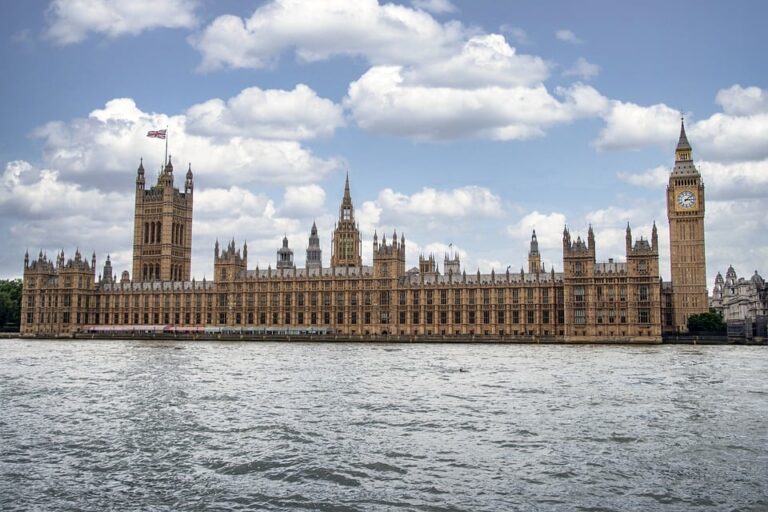Last updated Feb. 6, 2025 by Charles Zemub
The fluctuations in mortgage rates have always been a topic of interest for homeowners, potential buyers, and investors. The COVID-19 pandemic caused rates to hit record lows, leading many to lock in advantageous long-term financing. However, in recent years, rates have been experiencing an upward trajectory. With speculation and predictions swirling, the question on everyone’s mind is: When will mortgage rates hit 5%?
The Current Landscape
As of late 2023, mortgage rates have seen periodic upward trends but have fluctuated widely due to various economic factors including inflation, Federal Reserve policies, and global economic changes. Historically, when the economy grows and rebounds, mortgage rates tend to rise in response to better consumer confidence and increased spending.
Factors Influencing Mortgage Rates
1. Federal Reserve Policies
The Federal Reserve plays a crucial role in determining interest rates which indirectly influence mortgage rates. By adjusting the federal funds rate, the Fed can either curtail or encourage borrowing and spending, influencing mortgage interest rates over time. A decision to increase rates typically reflects a strong, growing economy and efforts to keep inflation in check.
2. Inflation
Inflation is a critical component that influences mortgage rates. When inflation is high, lenders demand higher rates to compensate for the decline in purchasing power. Currently, inflation remains a significant concern, and how it is managed will greatly impact mortgage rates.
3. Economic Growth
The performance of the economy is a considerable factor. A booming economy generally sees higher interest rates. Indicators such as employment numbers, GDP growth, and consumer spending levels are all signals of economic health that can pressure rates upward.
4. Global Market Influences
Global events and economic developments also play a role in U.S. mortgage rates. Factors such as geopolitical tensions, foreign market instability, and international trade dynamics can influence investor sentiment and capital flows, affecting mortgage rates.
5. Housing Market Dynamics
Conditions in the housing market itself can impact mortgage rate trends. High demand for housing or a shortage of supply can place upward pressure on rates. Conversely, excess inventory or low demand can lead to rate reductions as lenders compete to issue more loans.
Predicting the Future: Will We See 5%?
Predicting when exactly mortgage rates will hit 5% involves making assumptions based on current economic conditions and anticipated changes. Analysts use economic indicators, financial models, and historical trends to make educated guesses, though unexpected global events can always disrupt predictions.
Projections for 2024-2025
Given the current economic outlook, experts have varying opinions on the timeline for reaching a 5% benchmark. Some analysts suggest that if inflation is tamed and growth stabilizes, we could see more moderate rate increases, delaying the jump to 5%. Others contend that if inflation remains persistent and economic growth robust, a 5% rate could be seen as early as 2024.
The Role of the Federal Reserve and Inflation
Should the Federal Reserve decide to increase the federal funds rate more aggressively to combat inflation, mortgage rates could see sharper increases. As of now, the Fed’s strategy involves gradually raising rates, but shifts in policy direction could trigger a quicker ascent to 5%.
Implications of a 5% Mortgage Rate
A rise in mortgage rates to 5% would have several implications for the housing market and the broader economy.
1. Home Buying Affordability
Higher mortgage rates typically translate to higher monthly payments, impacting affordability. Prospective home buyers may have to adjust their budgets, potentially leading to a cooling in housing demand.
2. Refinancing Decisions
For homeowners with adjustable-rate mortgages or those considering refinancing, a 5% rate may reduce the appeal of refinancing, impacting loan originations.
3. Housing Market Slowdown
A potential consequence of higher rates is a slowdown in the housing market, as increased borrowing costs can dampen demand. This could stabilize housing prices, affecting sellers and new constructions.
4. Consumer Spending
Mortgage payments constitute a large portion of household budgets. Higher rates could reduce discretionary spending, possibly slowing economic growth.
Preparing for Higher Rates
Financial Planning
Homebuyers and homeowners should consider how higher rates will affect their financial situation. Planning for future rate hikes by building a buffer in your budget can be prudent.
Locking in Rates
Current mortgage holders should consider locking in a rate if they anticipate financial markets will continue to power swift rate increases. This is particularly relevant for those planning to stay in their homes long-term.
Consider Adjustable Rate Mortgages (ARMs)
While fixed rates provide stability, some buyers may consider adjustable-rate mortgages if they anticipate a future rate decline or plan to move within a few years.
What Can Borrowers Do Now?
Stay Informed
Keeping up to date with financial news, Federal Reserve announcements, and economic indicators will offer insights into potential rate changes.
Consult Financial Advisors
Speaking with mortgage advisors or financial planners can provide personalized strategies to navigate the shifting interest rate environment.
✓ Short Answer
While predicting the exact moment mortgage rates will reach 5% is complex, a combination of high inflation, economic growth, and Federal Reserve policies will influence this trajectory. If inflation remains persistent, we could see mortgage rates approach 5% by 2024 or 2025. However, economic stabilization and controlled inflation may delay this occurrence. Individuals should monitor financial conditions and consult with mortgage professionals to strategically plan for future rate changes.
FAQs
1. What causes mortgage rates to rise?
Mortgage rates rise due to factors like inflation, Federal Reserve policies, economic growth, housing market dynamics, and global economic influences.
2. How can I protect myself from rising mortgage rates?
Consider locking in a fixed mortgage rate, budgeting for potential increases, or exploring adjustable-rate mortgages with strategic timing.
3. Is it a good time to buy a house when rates are rising?
This depends on individual financial situations and market conditions. Speak to financial advisors to weigh the benefits and costs based on current rates and your long-term plans.
4. Will rising mortgage rates affect housing prices?
Yes, higher mortgage rates can lead to reduced demand for housing, which may stabilize or reduce housing prices over time.
5. What is the Federal Reserve’s role in mortgage rates?
The Federal Reserve influences the broader interest rate environment with its federal funds rate adjustments, indirectly affecting mortgage rates by controlling inflation and supporting economic growth.





